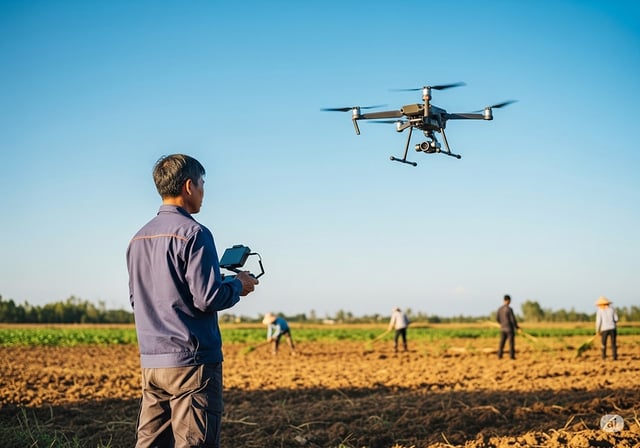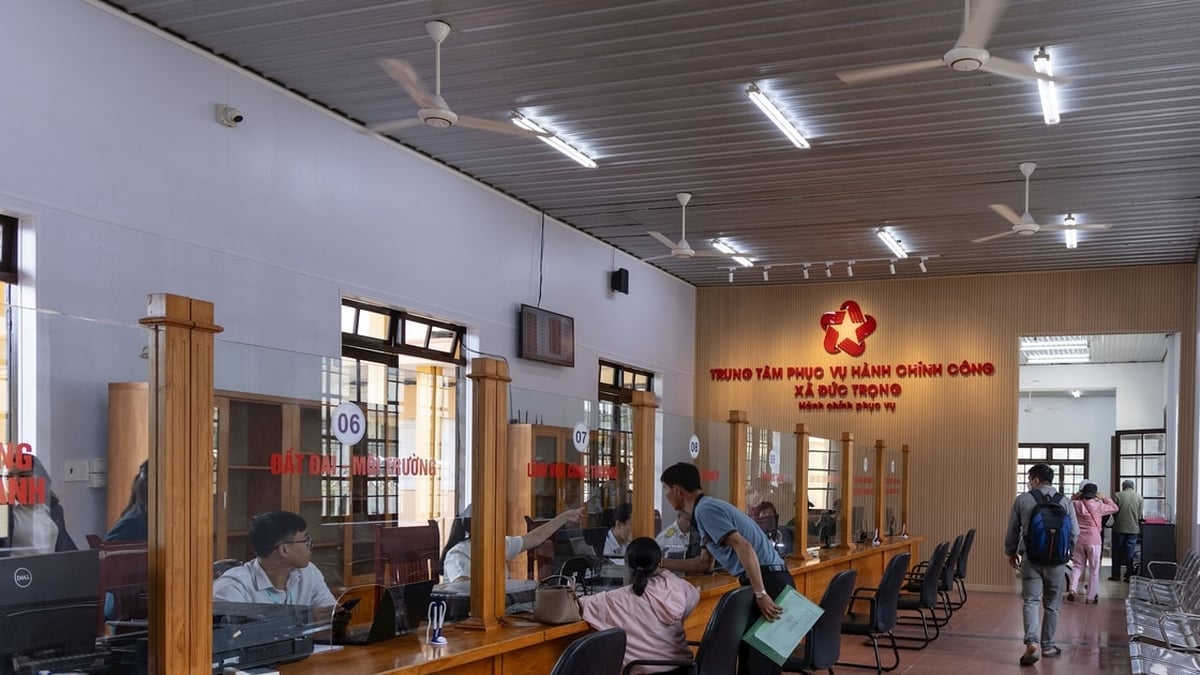Doctors at the Department of Orthopedic Trauma Surgery, E Hospital ( Hanoi ) recently received a 43-year-old male patient (in Hanoi) with serious injuries caused by a remote-controlled aircraft.

Drones are increasingly popular, but if not operated properly, they can pose a potential risk of accidents.
Photo: PHUONG AN CREATED BY GEMINI AI
According to Hospital E, the patient was admitted with severe blood loss, with large, jagged lacerations on both buttocks. Upon admission, doctors promptly made a clinical assessment, temporarily stopped the bleeding, and disinfected the wound to prevent the risk of infection.
With a complex wound, large in size, left side 6 x 9 cm, right side 6 x 10 cm, the patient was quickly operated on to avoid hemorrhagic shock or infection that could endanger his life. During the surgery, doctors cleaned the crushed tissue, continuously irrigated the wound area, cut and filtered necrotic tissue, checked for vascular and nerve damage, and performed multi-layered sutures. The patient's health is now stable.
Regarding the injury, the patient said that while operating the remote-controlled pesticide sprayer, the device suddenly malfunctioned: it could not fly as high as usual even though the fan blades were still rotating. Instead of applying safety measures such as stopping the device remotely or waiting for the fan blades to stop completely, the patient approached with the intention of removing the battery to check. While bending down to operate, the fan blades, which were still operating at high speed, suddenly slashed repeatedly into the buttocks, causing many deep lacerations on both sides and massive bleeding.
According to specialist 2 Kieu Quoc Hien, Head of the Department of Orthopedic Trauma Surgery - E Hospital, currently remote control devices, especially drones, are increasingly being used in agriculture . If not operated properly, these devices pose a risk of serious accidents. With high operating capacity, the rotation speed of the fan blades can reach thousands of revolutions per minute, creating a very strong cutting force, enough to cause serious damage to soft tissues, and can even rupture tendons and muscles if exposed at close range.
In the above patient case, the wounds in the buttocks area were not only wide and ragged due to repeated slashing, but also had a very high risk of infection. Drones operate directly in the field environment, which contains a lot of dust, bacteria and pesticide residues. Therefore, emergency treatment needs to be carried out quickly to avoid complications.
Doctor Kieu Quoc Hien added that this patient was very lucky that although the cuts were wide, they did not damage the important nerves in the buttocks area. If the cut had deviated about 1-2 cm downwards, the fan blade could have cut the sciatic nerve - the largest and most important nerve that controls sensation and movement of the entire lower limb. If the sciatic nerve is severed, the patient faces partial or complete paralysis of the leg, seriously affecting the ability to walk and recover. In addition, if the wound deviated upward, the risk of severing the superior gluteal nerve is also very high, leading to complications such as abnormal gait, weak gluteal muscles and loss of body balance during movement. These are very complicated complications, difficult to recover from and can have long-term effects on quality of life.
Source: https://thanhnien.vn/chan-thuong-nguy-hiem-do-van-hanh-drone-khong-dung-cach-18525070818543057.htm





![[Podcast] No need to change passport or citizen identification when administrative boundaries change](https://vphoto.vietnam.vn/thumb/1200x675/vietnam/resource/IMAGE/2025/7/9/dfcd127b84b24a19a031801698c9a51f)



























































































Comment (0)